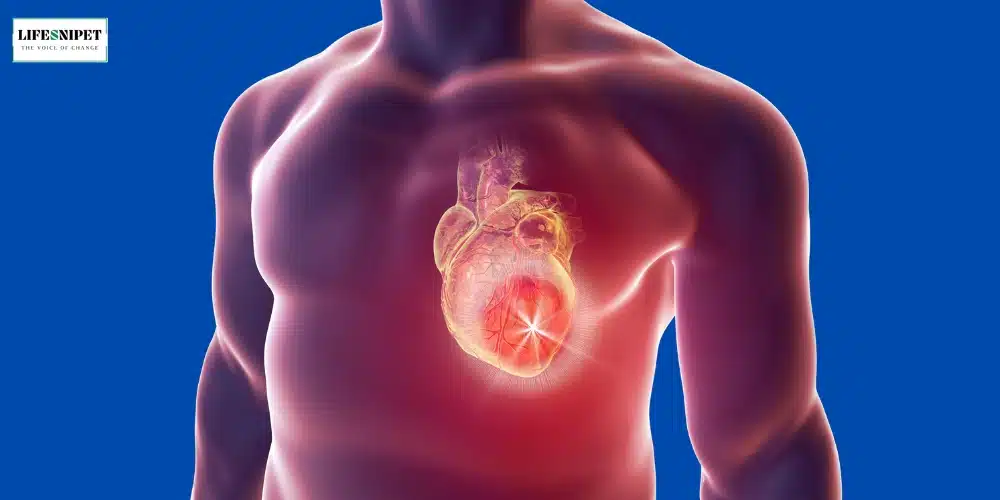Heart attacks are a serious medical condition that can have life-threatening consequences. As someone who has experienced a heart attack myself, I understand the importance of awareness and knowledge when it comes to this topic. This article will provide a comprehensive guide to understanding heart attacks, including their causes, symptoms, risk factors, emergency response, diagnosis, treatment, prevention, and management. I will also debunk common misconceptions surrounding heart attacks. By the end of this article, you will better understand heart attacks and what you can do to protect your heart health.
Understanding Heart Attacks: Causes and Symptoms
A heart attack, also known as a myocardial infarction, occurs when the blood flow to the heart muscle is blocked, often by a blood clot. This blockage prevents the heart from receiving the oxygen and nutrients it needs to function properly. The most common cause of a heart attack is coronary artery disease, a condition characterized by the buildup of plaque in the arteries that supply blood to the heart.
The symptoms of a heart attack can vary from person to person, but common signs include chest pain or discomfort, shortness of breath, lightheadedness, nausea, and pain or discomfort in the jaw, neck, or back. It is important to note that not everyone experiences the same symptoms, and some individuals may not have any symptoms at all, a condition known as a silent heart attack. If you or someone you know experiences any of these symptoms, it is essential to seek immediate medical attention.
Risk Factors for Heart Attacks
Certain factors increase the risk of experiencing a heart attack. These include:
- Age: The risk of heart attacks increases with age, especially for individuals over the age of 65.
- Gender: Men are at a higher risk of heart attacks compared to women, although the risk for women increases after menopause.
- Family History: If you have a close relative who has experienced a heart attack, your risk may be higher.
- Smoking: Smoking damages blood vessels and increases the likelihood of developing coronary artery disease.
- High Blood Pressure: Uncontrolled high blood pressure strains the heart and arteries, increasing the risk of a heart attack.
- High Cholesterol: High levels of cholesterol contribute to the buildup of plaque in the arteries.
- Obesity: Excess weight puts additional stress on the heart and increases the risk of heart disease.
- Diabetes: Individuals with diabetes are at a higher risk of developing heart disease, including heart attacks.
- Sedentary Lifestyle: Lack of physical activity contributes to the development of risk factors such as high blood pressure, obesity, and high cholesterol.
- Stress: Chronic stress can elevate blood pressure and increase the risk of heart attacks.
It is important to be aware of these risk factors and take steps to mitigate them through lifestyle changes and medical interventions.
Recognizing the Signs of a Heart Attack
Recognizing the signs of a heart attack is crucial for prompt medical intervention, which can significantly improve the chances of survival and minimize damage to the heart. The most common symptom of a heart attack is chest pain or discomfort. This pain may feel like pressure, tightness, or squeezing, and it may radiate to the arms, neck, jaw, or back. Other symptoms include shortness of breath, lightheadedness, nausea, and cold sweats.
It is important to note that not all heart attacks present with the classic symptoms. Some individuals, particularly women, may experience atypical symptoms such as fatigue, indigestion, or pain in the upper abdomen or throat. These symptoms may be mistaken for other conditions, leading to delayed medical care. If you experience any symptoms that concern you, it is always better to avoid caution and seek medical help immediately.
Emergency Response for Heart Attacks
When a heart attack occurs, time is of the essence. Acting quickly can save lives and minimize damage to the heart. If you suspect that you or someone else is having a heart attack, follow these emergency response steps:
- Call Emergency Services: Dial your local emergency number immediately.
- Chew Aspirin: If prescribed aspirin, chew it to help prevent blood clot formation.
- Stay Calm: Try to remain calm and reassure the person experiencing the heart attack.
- Perform CPR: If the person becomes unresponsive and stops breathing, begin cardiopulmonary resuscitation (CPR) if you are trained in this technique.
- Use an Automated External Defibrillator (AED): If available, follow the instructions provided with the AED.
Remember, every minute counts during a heart attack. Do not hesitate to seek emergency medical help.
Diagnosing and Treating Heart Attacks
Diagnosing a heart attack involves a combination of medical history, physical examination, and diagnostic tests. Your doctor will ask about your symptoms, risk factors, and family history, and may perform tests such as an electrocardiogram (ECG), blood tests, and imaging tests.
Once a heart attack is diagnosed, the primary goal of treatment is to restore blood flow to the heart muscle as quickly as possible. This may involve medications to dissolve or prevent blood clots, procedures such as angioplasty or stenting to open blocked arteries, or bypass surgery to create new pathways for blood flow.
After a heart attack, ongoing treatment and management are necessary to prevent further complications and protect heart health. This may include medications to manage risk factors such as high blood pressure, high cholesterol, and diabetes, as well as lifestyle changes such as a healthy diet, regular exercise, smoking cessation, and stress management.
Preventing Heart Attacks Through Lifestyle Changes
Prevention is key when it comes to heart attacks. Making certain lifestyle changes can significantly reduce the risk of developing heart disease and experiencing a heart attack. Here are some steps you can take to protect your heart health:
- Quit Smoking: Smoking damages blood vessels and increases the risk of heart disease. Seek support and resources to help you quit.
- Eat a Heart-Healthy Diet: Focus on consuming fruits, vegetables, whole grains, lean proteins, and healthy fats while limiting saturated and trans fats, sodium, and added sugars.
- Maintain a Healthy Weight: Aim for a body mass index (BMI) within the healthy range by following a balanced diet and engaging in regular physical activity.
- Exercise Regularly: Aim for at least 150 minutes of moderate-intensity aerobic exercise or 75 minutes of vigorous-intensity exercise per week.
- Manage Stress: Find healthy ways to cope with stress, such as practicing relaxation techniques, engaging in hobbies, or seeking support from loved ones.
- Control Blood Pressure: Adopt a low-sodium diet, limit alcohol intake, exercise regularly, and take prescribed medications as directed to maintain healthy blood pressure levels.
- Manage Diabetes: Monitor blood sugar levels, take medication as prescribed, follow a balanced diet, and engage in regular physical activity to control diabetes.
- Limit Alcohol Consumption: Excessive alcohol consumption can increase blood pressure and contribute to the development of heart disease. Drink in moderation, if at all.
- Get Regular Check-ups: Regular visits to your healthcare provider can help identify and manage risk factors for heart disease.
- Sleep Well: Aim for 7-8 hours of quality sleep each night to support overall health and heart function.
Incorporating these lifestyle changes into your daily routine can significantly reduce the risk of heart attacks and improve your overall health.
Managing Heart Health After a Heart Attack
After experiencing a heart attack, it is crucial to take steps to manage your heart health and reduce the risk of future cardiac events. Your doctor will guide medications, lifestyle modifications, and ongoing monitoring to ensure optimal heart function. It is important to adhere to your treatment plan and attend regular follow-up appointments to track your progress and address any concerns.
In addition to medical interventions, adopting a heart-healthy lifestyle is essential for managing heart health after a heart attack. This includes following a nutritious diet, engaging in regular physical activity, quitting smoking, managing stress, and maintaining a healthy weight. Your healthcare team may also recommend participation in a cardiac rehabilitation program, which provides education, exercise training, and emotional support to aid in your recovery.
Remember, managing heart health after a heart attack is a lifelong commitment. By taking proactive steps to care for your heart, you can lead a fulfilling and healthy life.
Support and Resources for Heart Attack Survivors
Recovering from a heart attack can be a challenging journey, both physically and emotionally. It is important to seek support and utilize available resources to aid in your recovery and adjustment to a new normal. Here are some sources of support for heart attack survivors:
- Healthcare Team: Your doctors, nurses, and other healthcare professionals are valuable sources of information and support. Don’t hesitate to ask questions or voice concerns.
- Cardiac Rehabilitation Programs: These programs provide education, exercise training, and emotional support to aid in your recovery and reduce the risk of future cardiac events.
- Support Groups: Connecting with others who have experienced similar challenges can provide a sense of community and understanding. Look for local support groups or online communities.
- Family and Friends: Lean on your loved ones for emotional support, encouragement, and assistance with lifestyle changes.
- Mental Health Professionals: If you are struggling with anxiety, depression, or other emotional difficulties, consider seeking support from a mental health professional.
Remember, you are not alone in your journey. Reach out for support when needed and take advantage of the resources available to you.
Mythbusters: Common Misconceptions About Heart Attacks
There are many misconceptions surrounding heart attacks that can contribute to misinformation and delay appropriate medical care. Let’s debunk some common myths:
- Myth: Heart attacks only happen to older adults. Fact: While the risk of heart attacks increases with age, they can occur at any age, including in younger individuals.
- Myth: Heart attacks always cause severe chest pain. Fact: While chest pain is a common symptom, some heart attacks may present with atypical symptoms or no symptoms at all, particularly in women.
- Myth: Only men need to worry about heart attacks. Fact: While men are at a higher risk of heart attacks, heart disease is the leading cause of death for women in many countries.
- Myth: Heart attacks only happen during physical exertion. Fact: Heart attacks can occur at any time, including during rest or sleep. Physical exertion may trigger a heart attack in some individuals, but it is not the sole cause.
- Myth: Heart attacks are always fatal. Fact: With prompt medical intervention, many people survive heart attacks and go on to live fulfilling lives. However, it is crucial to seek medical help as soon as possible.
By debunking these myths, we can increase awareness and ensure that accurate information is available to the public.
Conclusion
Heart attacks are a serious and potentially life-threatening medical condition. By understanding the causes, symptoms, risk factors, emergency response, diagnosis, treatment, prevention, and management of heart attacks, you can take proactive steps to protect your heart health. Remember to seek immediate medical attention if you suspect a heart attack, and make lifestyle changes to reduce your risk of experiencing cardiac events. With the right knowledge and actions, you can lead a heart-healthy life and minimize the impact of heart attacks.
FAQs
Q: Can heart attacks be prevented?
A: While it is not possible to eliminate the risk of heart attacks, certain lifestyle changes can significantly reduce the likelihood of experiencing a heart attack. These include quitting smoking, adopting a heart-healthy diet, engaging in regular physical activity, managing stress, and controlling risk factors such as high blood pressure, high cholesterol, and diabetes.
Q: Are all heart attacks the same?
A: No, heart attacks can vary in severity and presentation. Some heart attacks may cause severe symptoms, while others may present with atypical symptoms or no symptoms at all. It is important to be aware of the different ways that a heart attack can manifest and seek medical help if you suspect you may be experiencing one.
Q: Are heart attacks always fatal?
A: While heart attacks can be life-threatening, many people survive with prompt medical intervention. Seeking immediate medical attention is crucial to increase the chances of survival and minimize damage to the heart. It is important to be aware of the symptoms of a heart attack and take them seriously.
Q: Can heart attacks happen to young people?
A: While the risk of heart attacks increases with age, they can occur at any age, including in younger individuals. Certain risk factors, such as smoking, high blood pressure, high cholesterol, obesity, and a family history of heart disease, can increase the likelihood of experiencing a heart attack at a younger age.
Q: How can I support a loved one who has experienced a heart attack?
A: Supporting a loved one who has experienced a heart attack involves providing emotional support, assisting with lifestyle changes, and encouraging adherence to medical treatment plans. It is important to be patient, understanding, and empathetic, as recovery from a heart attack can be a challenging process.

Welcome to LifeSnipet! At LifeSnipet, we’re your ultimate source for the latest health updates. Specializing in health and fitness-related diseases, we delve deep into Ayurvedic techniques, providing you with a comprehensive understanding of well-being. Explore our real-time updates, detailed articles, and ancient Ayurvedic wisdom for a holistic approach to health. Embark on a journey to a healthier, vibrant life with LifeSnipet – where your well-being is our priority!











